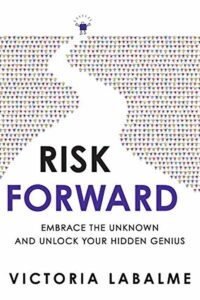Success On The Undetermined Path With Victoria Labalme
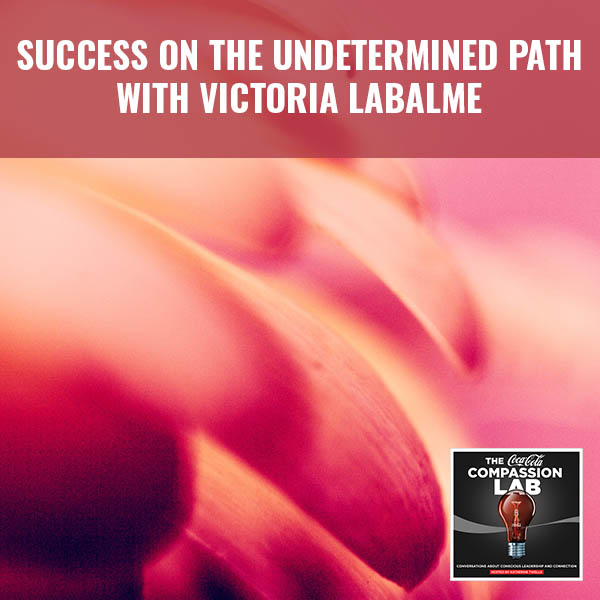
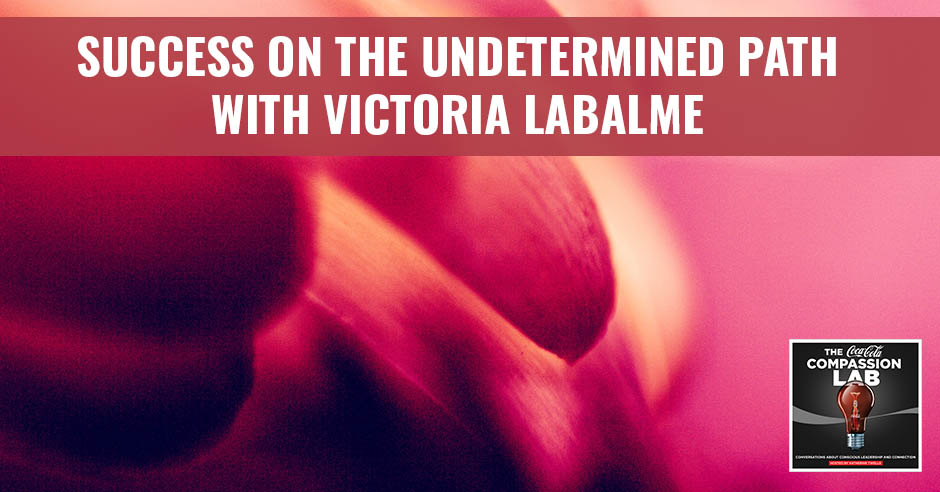
Life is unpredictable. We don’t know what and who might come into our lives. While it can be challenging, there are those who find success in the undetermined path, just like our guest in this episode. Victoria Labalme is a Wall Street Journal Bestselling Author, Keynote Speaker, Speaker Hall of Fame, and Founder of Rock The Room® & Risk Forward®. She sits down with Katherine Twells to share her amazing journey of following her bliss and watching as opportunities unfold themselves in front of her. Victoria talks about limiting goals, the importance of a through line, and bringing our internal power out into the open. She then discusses why most of us fear not knowing what is to come and how we can overcome this. Through it all, Victoria reminds us to pursue what lights us up, even if it makes no sense. Because it is in embracing our calling, despite the unknown, can we move towards an expansive life.
—
Listen to the podcast here
Success On The Undetermined Path With Victoria Labalme
How Embracing The Unknown Can Lead You Into An Expansive Life
In this episode, I’m sharing a conversation with the incredible Victoria Labalme. Victoria is a master at helping people dramatically elevate their ability to communicate, connect and most importantly, come alive. Who doesn’t want more of that? She offers this special and strategic blend of art and business that taps into her decades of performing arts experience from HBO to Carolines on Broadway, comedy clubs, television, one-woman shows and documentary film. Her creative projects have received critical acclaim from The Hollywood Reporter, Variety, BBC, CBS, New York Times, LA Times and Good Morning America.
As a member of the Speaker Hall of Fame, Victoria is known for her customized keynote performances and workshops all over the world. I can testify as Victoria came to present at the Coca-Cola CMO Summit in 2019. Her passion, her dedication and how she tailored that was incredible to watch. She’s a Wall Street Journal bestselling author of Risk Forward and Founder of Rock The Room and High Performance Communications.
As I’ve gotten to know Victoria, honestly, I don’t think there’s anything she can’t do. You’ll hear in our conversation that behind her success is a noble intent toward service. I believe that as we all find the ways that we can come alive, then we too can be of the greatest service to others. Please enjoy the conversation with the very talented Victoria Labalme.
—
Victoria, it is so great to see you again. I wanted to say thank you so much for taking the time to be on the show and engage in this conversation. We’re going to have tons of fun. Thank you.
It is such a delight to be here with you.
Victoria Labalme’s Origin Story
It’s going to be a great conversation. I have to start this like I start all of my interviews because it’s so telling to know where it all began. Your origin story, how did it all start for you? Can you share that with us?
I grew up in New York City. Like many people, I had a lot of different interests. A lot of people have that, whether it’s yourself or your kids. I had different passions. I was interested in writing, performing, comedy, character work, movement and mime and producing. As my friends started to hone in on their areas of expertise, whether it was law or medicine, I kept floundering and doing these different elements. I came from a family, fortunately, where my parents encouraged that. They said, “Try different disciplines and see what interests you.”
I went through college and studied English Literature but also Arts at Stanford University. When I got out again, my friends were making choices. They gave me a hard time like, “What are you going to do? Are you going to be a mime or an actor? How’s that going to work out?” I kept following what lit me up, which is what I believe is so important for each of us even if it makes no sense. Little by little, it started to come together.
It is important for each of us to keep following what lights us up, even if it makes no sense. Share on XI was doing comedy, clubs, theater, film and television. I got picked up by a manager for Robin Williams and Billy Crystal. My career was taking off but the real shift happened with 9/11 and my mother two days later diagnosed with pancreatic cancer. It was so much back-to-back. I started to ask, “How can I help?” That’s the question so many of us ask. I said, “How can I use my gifts and talents to benefit others?” That shifted my career.
A guy asked me to come and help speakers with their storytelling and how they engage with the audience. That led to working with corporate executives and teams, communications workshops, keynotes and consulting. This has been my path. I never had a plan or a real goal. I kept following what lit me up and one thing led to the next. Here I am with you.
Following The Undetermined Path
It was Joseph Campbell that talked about following your bliss. You always did that. There are so many voices in our lives. It sounds like your family was so open to you doing this which tells us these are paths we should take or we need to take. Why do you think you were able to do that no matter what people were saying around you? What was it about you that enabled you to follow that undetermined path?
I love that phrase, the undetermined path. That’s good. Partly, it has to do with my family. I came from a very liberal arts-oriented educational background where it wasn’t messaged to us that we had to choose a lane too early on. My parents both had developed their successful careers through similar means. My mother ended up with a PhD from Harvard. She was on the board of companies. She was the president of boards of schools. People used to say to her, “How did you achieve all that? What was your goal? What was your plan?” She said, “I never had a plan. I always did what was next and I did the best I could with what I had.” Part of it was a type of approach to life that was supported and encouraged in my family.
I wish all parents would do that because there’s so much unfolding in our children that we can’t always see what’s around the corner for them. You talk about in your book the idea that leads to the idea. We go on our journeys and can’t predict who might come into our lives. Maybe it is something we might discover that brings us joy.
Often, when people come to me within the company and I’ve spent my whole career with the company doing different things, they want to talk about, “How did you get to where you are?” I have a very similar answer. I never had a plan. I never had this master. I was like, “What’s next? What am I enjoying? What’s the next opportunity?” If you allow it to come and unfold in front of you, it does.
I couldn’t agree more. Often, if we set to firm a goal, it can get in the way of your life. There’s a line in my book where I say, “Don’t let your goals get in the way of your vision.” Goals can sometimes limit us. We think of them as making us stretch and reach. I often think that it puts blinders on people. To your point about children, a cousin of mine had a child who was interested in horses. The parents are very disciplined in their professions and they were discouraging this child. I thought, “How do you know where this passion’s going to lead?”
Often, if we set too firm a goal, it can really get in the way of our life. Share on XFinally, they relented. They let this young woman follow her love of horses. She ended up working at the stable learning not just about horses but about discipline, schedules and managing people. I often think that these passions that we have that don’t have logic are not necessarily for themselves in and of themselves. They are because they teach us something. Who are we as parents to tell children, “No, that’s not a worthy pursuit?”
It was a YouTube video or something that Steve Jobs was telling a story of how he chose to take a calligraphy class in college. You probably know the story. Everyone’s like, “Why are you taking calligraphy?” In this talk, he talks about how you look back on your path and see how those dots connect but when you’re starting, you don’t see that. You see that in hindsight. When I think about everything you’ve done from performing arts to mind to business, you’ve touched many domains with expertise but you can only see how those served in hindsight, not when you were getting into it.
When I first started doing professional speaking, there was an agent who said, “What’s your expertise? Who’s your ideal audience? Who’s not your ideal audience?” I’d come from my acting background so I thought, “I’m going to probably guess that technology and finance would not be my audiences.” I can tell you they’ve been two of my biggest audiences. What I’ve done is take the background of the arts and principles from theater and movies about life, scenes and communication and apply them to an extremely different world, finance and technology. It’s fascinating for them. It’s fun for me. It’s different, relevant and helpful. Who would’ve thought?
The Importance Of A Through Line
We never know. You are a multi-dimensional being. There are so many talents that you have and I have so enjoyed as I’ve gotten to know you. These different aspects of Victoria are also inspiring, light-filled and amazing in what you bring. I want to talk about a couple of those different pathways that you’ve taken. You talked about it at the Summit. One of the things I love is how you talk about the throughline of our lives and how important that is. Can you share a bit more about that concept?
This is a concept that can be applied today, tomorrow, in a communication setting next week or tonight at dinner with your family. This has been a concept I’ve talked about for many years and it seems to resonate. Here it is. The throughline is a term that was coined by the great Russian theater artist, Stanislavski. Whenever someone says throughline, you know where it comes from. This is not something that people made up. He meant it to designate the driving force in a character’s behavior.
Every movie has characters that are driven by a throughline. It becomes this guideline for the actions in the play or the movie. Each of us has a throughline. I like to look at it in terms of our larger life throughline. If you’re a character in the movie of your life, what’s driving your character? It’s different from purpose. People get a bit twisted up about, “What’s my purpose?” I think of the throughline as your noble intent. It shows up in how you talk to the person at the hotel front desk, your kids or your friends. We each have some kind of driving force.
When I work with businesses or teams, I say, “Our lives are comprised of scenes. A scene is our meeting for this interview. A scene is a meeting with a client or a customer with your team. A scene is a keynote speech or a conversation out in the hallway. Each of those scenes has its throughline. If you can align your intention or throughline to be positive, help, serve, understand, support and collaborate, those are positive throughlines.” This is my term, negative and positive. Sometimes, people have a negative throughline. It gets in their way. It is to be the best, be the number one or be seen as smart. When we have a throughline that’s pointed toward our needs, it’s not as effective.
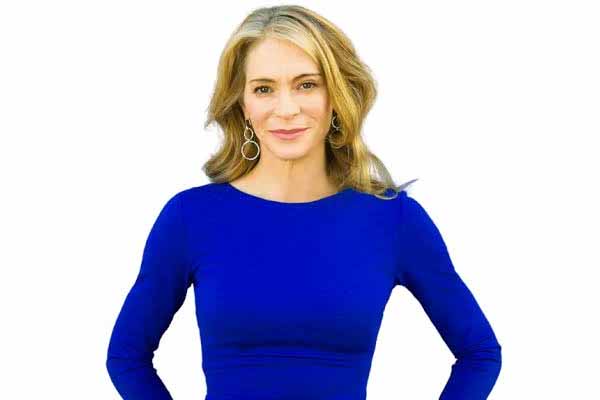
Undetermined Path: When we have a through line that’s pointed toward our own needs, it’s not as effective.
You mentioned in your origin story that 9/11 and your mother’s diagnosis pivoted your noble intent into service. There are books out there that talk about the chapters of our lives and how when we’re young, we often tend to be a bit more about the me. As we age and understand we’re all connected, we become more about the we. At least we hope that we evolve into that place.
The Compassion Lab is about how we evolve our consciousness. How do we evolve our role in the world to serve through our essence and gifts? If they’re reading the conversation and they are saying to themselves, “I get this throughline thing but maybe I’m not sure how to identify it for myself,” how would you guide people to look for those cues to understand that for themselves?
There’s a question that I asked your audience for the CMO Summit, which is in the book Risk Forward. It’s one that’s in my TED Talk so it’s not private. I’ll ask it here because it’s profound and a real eye-opener for people. The question is this. If you were on a deserted island and you were dying and you knew you weren’t going to make it but there was a young person there with you whom you knew would make it, which was someone you loved and someone you cared deeply about, if you could only give that young person one piece of advice about life and how to live, what would that piece of advice be?
To anyone reading, you know that answer instantly. For some of you, it’s, “Be kind. Follow your dreams. Bring your gifts to help others. Enjoy every day.” Whatever the answer is, I summarize by saying, “If that’s the message you would give at the end of your life if you were dying, if that’s your last message to someone you wanted to live a fulfilling life, then that, to me, is what you believe is important in life.” Therefore, how can each of us live as much as we can daily? What would be your answer, Kathy?
The first thing that came up for me was to truly trust yourself and your inner guidance. Have that sense of trust in the path and the process, not in the noise. It’s not in what everyone else has to say but what you know. You know what you know.
I’m going to put you on the spot. I’m curious. Have you seen that when you’re most effective as a leader with your team and others? Do you feel that’s coming through on some level that you’re encouraging them to trust themselves and step into their truth?
I do. If I think about my noble intent as a leader, it is to invite other people into the space to explore their greatest potential that is only known by them, not by me. When I took this executive leadership coaching class, it was such a revelation to understand the power of questions and listening in a dialogue versus trying to be the wise sage to tell young people everything that they need to know. It’s not that there isn’t wisdom to be shared. We’re sharing some, hopefully, in this conversation.
There’s a lot of internal wisdom and power that people have. That’s the other thing I see in this work. When you take one step beneath the mask of what we all try to be like, “We have it all under control and figured out,” underneath that mask, there are a million voices in people’s heads. It’s about whether they’re worthy, what things should matter to them and the voices of many people in their lives.
Bring Your Internal Power Out
One of the things I admire about your work too, which is common to my mission, is you help people get in touch with their personal power in many ways. We’re talking about the throughline but there’s even more. I think about the work that you do in Rock The Room and how people can own their power and space. What is so exquisite about your skill is you’ve taken this pathway of doing all these different things. You’ve taken your artistry and somatic skills into the business world, which translates into powerful communication and presence. Talk a little bit about that. How do we bring this internal power out into the open?
I’m going to be stepping back a few layers to my question to you about the deserted island.
I turned the tables quickly away from me. I’m like, “Back to you.”
That was masterfully done but I’ll keep myself in the spotlight for a minute to give you the rest. My answer for the desert island would be, “Do it your own way.” That is not to be someone who defects, although that might be what someone chooses. It is how you bring your style to your leadership, meetings, parenting or presentations. That do-it-your-own-way essence comes through everything, whether I’m talking to my stepdaughter saying, “Is that the roommate you want? Is that the way you want to decorate?” We have voices in our heads so pick the pillows you like.
When I’m working with an executive on their presentation skills, that’s what you referred to as Rock The Room. Sometimes, a company calls me up because they know my brand. They say, “Could you come in and coach our executive? He’s awkward on stage. He doesn’t know what to do with his hands. He doesn’t know where to look with his eyes.” I always say, “That’s like fixing sprinkles on a cake. If the cake is lopsided, no amount of sprinkles is going to make it stand upright. Where it comes from is within.”
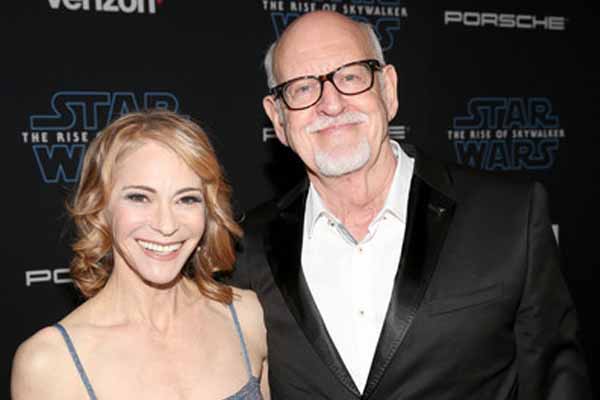
Undetermined Path: If the cake is lopsided, no amount of sprinkles will make it stand upright. Where it comes from is within.
It’s also why I’m not a fan of other people writing scripts for an executive. I say, “I can teach you how to express your ideas but they’ve got to be ones you own.” It starts again with a throughline. I’m like, “What is your real message to this audience?” Every scene has a throughline. If I’m a leader or a team member who’s speaking up, then what’s the intention in that session?
I was working with a top executive at Microsoft named John Roscoe. He had a speech in front of 17,000 people. I was coaching him. He had a lot of input from marketing, legal and all the different departments at the scale of that caliber. I said, “What is it you want to summarize and say to the audience?” He said, “Don’t hold back. We’ve given our Microsoft business partners so many tools.” That became the throughline of his speech like the Stanislavski concept. It tied together all the elements. It ended up also being his final words on stage. He was like, “Don’t hold back.” It was so passionate for him. It’s also what he feels in life. There’s so much more I could say but I’ll pause here.
Whether you’re a speaker to an audience you don’t know or within a company and you’re a leader, they can sense that throughline or authenticity if someone else has written your speech. While public speaking is so terrifying for so many people, we can all get better at it. Whenever I speak, I might know what I want to say from an outline but I don’t want to be overly scripted. I want it to feel like it’s coming from the heart and the soul and it’s how I feel. There’s an energy shift and I’m sure you’ve seen that in different situations.
I’m never a fan of a word-for-word written speech. I talk about it in my program, Rock The Room, as structured spontaneity. You want to have a structure in almost what I call the constellation techniques. You think about stars in the sky. You know the landing points of the constellation but in between, you have that freedom. That’s the spontaneity.
You have your first and final as I call it or where it begins and ends. You know the stars along the way but within that, you have the freedom of expression. It’s a very freeing concept. People say, “I don’t want to memorize my speech,” and then people say, “I also don’t want to wing it.” They feel like those are the two options, either memorize or wing it. This is in between.
I find there is always a middle way. We don’t want the pendulum to be in one place or the other. We want to find that sweet spot. I was in a conversation with another guest who has done some work with the Compassion Lab, Marc Champagne. We talked about this concept that even in an interview, you prepare. I certainly know you, what you’ve done, your materials and your brilliance. Yet, I want this to organically unfold in a rich and natural way. It creates a more beautiful outcome, for sure. It’s a lesson for life.
Why Are We So Uncomfortable With The Unknown?
We went through a big restructuring. We’ve been talking a lot about impatience to arrive at a certain place, having to go through the messy middle and the chaos to get to the order and how much we want to control. We want everything to be in control but we can’t. Great creativity isn’t about control. As a matter of fact, overly controlled anything probably comes out in a very paint-by-numbers fashion. As humans, we don’t like it. We don’t like the uncertainty.
This is a great bridge into the book as we talk about Risk Forward and all these incredible concepts you bring forth in this book. Part of it is this idea of uncertainty. We’ve talked about the unfolding but why are we so uncomfortable with not knowing what’s going to come next? You’re not a psychologist but why do you think we’re so uncomfortable with that?
We’re creatures of comfort to some degree. There are all types of personalities out there. Certainly, some people are okay with not knowing more. More people, however, are uncomfortable with that. Especially in a society where we are so often judged by plans, goals, metrics and measurements of sorts, it’s sometimes people’s discomfort with their uncertainty that makes them say, “What’s your plan?”
When I wasn’t getting married for years and I didn’t get married until my 40s, it seemed to me that the married people were more freaked out about it than I was. It was as if they’d made that choice. They felt uncomfortable that I hadn’t so they wanted me to do that too. It’s the illusion of safety that people have by having a “plan.”
The fact of the matter is we can never predict anything. Many of the things we worry about take up our energy. Going back to the throughline and the noble intent, if we stay anchored in those values in what we would say on that desert island, then it’s going to be okay because we have a North Star that we’re going after.
Along with the North Star, I would add that inner current. This is how I often describe the throughline. It’s this moving current. It carries us. You know you’re on the right path when you’re feeling curious, interested, excited or hopeful. You know you’re off it when you’re feeling like you’re dreading something or overwhelmed. We haven’t hooked in.
That’s not to say there aren’t days where you have a meeting that you’re dreading or you’re overwhelmed by the busyness of what I call a conveyor belt day. That’s a reality but my belief and it’s a firm belief is that if you can shift and say, “What is this meeting about? Why am I even doing this,” and tap into that noble intent, inner current, throughline or deserted island answer, all those positive elements, you remember. You’re like, “I get it.”
In my life, I do a lot of keynotes. I travel around. Sometimes, I get stressed out. I’m backstage. I’m nervous. I’m like, “Do I remember this?” I have to calm myself down and say, “You’re here to help and serve. It’s not about you.” It takes away all the anxiety. It doesn’t matter if my shirt is wrinkled or I forgot a specific name. It’s okay. That’s not what the speech is about. It’s about helping and the audience can feel that.
For all of us, if we go into a meeting or we’re stressed about a day, we’re so lucky. Anyone reading this show is fortunate. You have the technology to read and the time to read. You’re in the 0.1% of this planet. You’re not starving. I go look at our lives and we’re all so fortunate. We have shelter, technology and food. That’s a huge gift. Give it all that. Remember why you’re doing what you’re doing.
It all comes back to service. We step on stage and it can become about those primal fears of, “I’m going to make a fool out of myself.” When you do shift your mindset to, “I’m here to be of greatest service,” it is also knowing that most people in the audience are compassionate if you miss a word or make a mistake. You’re human. That’s the way it is. It’s a very different mental model to have that.
How To Create Space
Here’s a question I want to ask you. I remember you talking about the conveyor belt day at the Summit. There is no question. There is a level of intensity to our lives because a lot is coming at us, like emails. I was on vacation not too long ago. I put the out of office on my email but I also have instant messages and Teams. There are all these other ways people are trying to come into that space. How do you create space? To return to your noble intent, take a step out and remember that you’re serving and revisit why you’re doing what you’re doing, you have to become mindful versus mindless. How do you coach people to do that?
There are a lot of different ways. Some of them sound so corny but they are so effective. One of my mentors we referenced is Marcel Marceau, the great French mime. He used to watch me when I was trying out new material. He would always say, “Breathe.” He used to talk about how breathing heals us. If you think of the word inspiration or respirate, it’s spira. That’s the Latin root to inspire and respirate.
I had to run an errand before this interview. I was leaning forward at a little degree angle. I said, “Breathe. Stand upright. You don’t have to march and be tight as you walk down the street.” Take a breath. Sit up straight. Physiologically, when we stop breathing or we crunch our lungs because we’re hunched over our computer or phone, we interrupt the oxygen intake. That sends an alarm off to our system of panic. That’s one of our core. We need oxygen more than food. Number one, breathe.
Number two, on a practical level, what can you eliminate? We have the to-do list. Think about the not-to-do list like, “What’s one thing I can remove from my day-to-day?” It’s that little extra breathing. You’re like, “Maybe I won’t get to the gym. Maybe I won’t take care of this project.” If you can look for that little gap, it does something psychologically.
Similar to when I teach Rock The Room, I always say there is the 10% rule. I teach clients what I call the 10% rule. That means whatever your time allotment is and let’s say, you’ve been given a 60-minute speaking slot or a 15-minute speaking slot, cut it down by 10%. If it’s 60 minutes, you take off 6 minutes. If it’s 15 minutes, you take off 1.5. Knowing that you have that wiggle room and you psychologically planned for less gives you freedom. You can riff. You’re not rushed or looking at the clock. You don’t go over time. That’s the same concept for your day. How do we remove a little bit?
Practically, don’t subscribe to so many magazines. I say to people, “It stresses you out when you see them showing up and you’re not reading them. They pile up.” I go, “What can you remove? The subscription? The project?” I say this in Risk Forward, “Just because you’re good at something doesn’t mean you have to do it.”
Just because you're good at something doesn't mean you have to do it. Share on XI had a friend of mine. This was when I worked in Chicago. He subscribed to the Wall Street Journal. I walked into his office and he had a stack of Wall Street Journals halfway up his wall. I said, “Are you ever going to read any of those Wall Street Journals?” It was remarkable. There’s so much that does come into our space. I love your advice. We talk so much about the breath.
In the Compassion Lab, we do sessions for our teams where we practice breathing together. Even before a meeting, it is taking three deep breaths to become present. In a situation where we need our breath the most is when we stop breathing all the time. It is those high stakes that when we want to bring it, we stop breathing. To me, this is a practice that you have to keep showing up for because we forget. We have patterns. We get busy. Sometimes, things get crazy and we forget ourselves. That’s okay but then we return to it over and over again.
Crimson Star
I have to say to anyone reading that your book is beautifully outlined. You have a circle of contents. It is not meant to be a linear journey as we’re talking about not being in a linear controlled space. It’s a book of discovery. I would encourage anyone out there to pick it up. You could open it randomly to one section of the book and get so much out of it.
One of the concepts that I love from it and I want to read this excerpt because it sums up a lot of what we’ve been talking about with this follow your bliss and excitement is all about that Crimson Star. You say, “Trust the light that flickers across your soul even if it makes no sense to others and even if people question or discourage you. Your interest, curiosity and excitement are not only good enough reasons to explore the idea. They are the reasons. They are your hidden genius at work. They carry more wisdom than you know.” I love that so much. We’ve touched on it but can you talk a bit more about that Crimson Star?
I was working on this book. Trying to come up with a way to express the idea when you have that light that is like, “I want to try this. I want to start the Compassion Lab. I want to study mime. I want to take a class in painting. I feel like I want to pursue this type of client.” We often dismiss it for the reason there is no logic to it or we can’t see how it’s going to make money or people are going to ridicule us or the idea’s not fully formed. I do believe that light crosses our eyes and no one else’s in the way and at the time that it does.
There’s a wonderful passage in a Ralph Waldo Emerson essay. The essay is called Self-Reliance. There’s this passage where he says and I’m paraphrasing, “The light should hit your eye at that point in that particular way.” It’s like when we’re standing in a room and the sun comes through and it hits our eye. If we were 2 inches to the left or 2 inches to the right, it wouldn’t have hit our eye but it hits our eye and for me, that’s with anyone. When you’re in a meeting and you have that idea that flickers across, we say, “People probably had that idea,” but they didn’t. You did.
The Crimson Star is not necessarily always the end in itself but it’s the light that pulls you forward. It’s there to pull you forward. It’s not until we step into that that we can see the next opportunity. For me, when I went to study mime, that was a Crimson Star. It wasn’t that I wanted to be a mime. People think that the Crimson Star is the end goal but it’s not. It’s a thing that steps you forward so that you can see where you’re going.
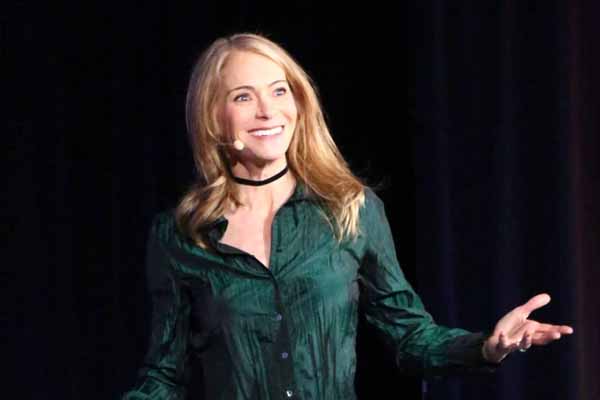
Undetermined Path: The Crimson Star is not necessarily always the end in itself, but it’s the light that pulls you forward. It’s not until we step into that, that we can see the next opportunity.
I went to study mime. I got a lot of ridicule for it. They were like, “You want to be a speaker but you can’t talk in mime.” It led me to the next step. That’s the thing. It’s your hidden genius. You never know. I encourage people to encourage their friends and family members to follow that Crimson Star. When someone says, “I have an idea,” our inclination is to try to sound smart, question it and give support instead of saying, “Try it out. Why not? Give it a shot.”
Take what I call a micro risk. It doesn’t mean quitting your job and moving across the country, although it could. It’s more like looking it up online, spending an hour exploring it and seeing where it takes you. I call it ICE, which is Interest, Curiosity and Excitement. If it brings Interest, Curiosity and Excitement, that’s a pretty good sign you’re on the right path.
That’s where the energy is. Follow that energy and it will bring you gifts beyond your wildest dreams. You have to go back to my desert island answer. You have to trust yourself and do it your way. Those are very connected things. We’re almost running out of time, even though we will have many more conversations after this. I love talking with you and learning from you. How can people work with you? There are a lot of different ways that you can engage with people because you have many skills and talents. Can you share how can people find you?
Follow that energy and it will bring you gifts beyond your wildest dreams. Share on XFor anyone reading, if you can’t remember my name, that’s okay. You can go to Risk Forward. If you search for the words Risk Forward, my book will come up and pages of websites will come up. I have to say something about the book because you touched on it briefly. For anyone reading who doesn’t like to read and likes pictures and colors, this is your book. It’s super short. The chapters are half a page. It’s full color.
You can read it in any order. It’s modeled on a children’s book but it’s written for adults, meaning it is fun to look at. Some pages have one word on them. Some pages have words going up the side of the page. It’s festive, creative, engaging and fun. If you’re interested in presentation skills, whether that’s for keynotes, podcast panels or meetings, that’s Rock The Room. It’s Risk Forward and Rock The Room.
On the Risk Forward site, we put together a little special treat for the audience. It’s RiskForward.com/Pod. There’s an interview there with my husband who worked with Orson Welles. He did the character Yoda and worked with The Muppets. He talks about how he risked forward in his life. That’s cool. The last is my name, VictoriaLabalme.com. That’s where you’ll see keynotes and fun videos.
I want to express my gratitude. It has been an honor and a pleasure to get to know you over time. You were an incredible presence at the CMO Summit in 2019. You continue to show up with all the things that you do so exquisitely well to help others find their true north and learn how to risk forward in a lot of different ways. I want to say thank you for all you do. I have one last question as we end. We’ve talked about a lot but is there any one piece of wisdom or something you’d want to leave everyone with as we end our conversation?
I like to say this. At the edge of not knowing is the beginning of the extraordinary.
I can’t top that. That’s a brilliant way to end. Thank you again for all that you give and all the service that you offer to so many. I appreciate you.
It’s been a delight. Thank you for having me.
Important Links
- Victoria Labalme
- Risk Forward
- High Performance Communications
- Rock The Room
- Marc Champagne – Past Episode
- RiskForward.com/Pod
About Victoria Labalme
 Victoria Labalme is a master at helping people at all levels dramatically elevate their ability to communicate, connect, come alive…and win over the people they serve.
Victoria Labalme is a master at helping people at all levels dramatically elevate their ability to communicate, connect, come alive…and win over the people they serve.
Love the show? Subscribe, rate, review, and share!
Join The Coca-Cola CMO Leadership Summit Podcast community today:
Bliss, Crimson Star, Embrace The Unknown, Risk Forward, Through Line, Undetermined Path
